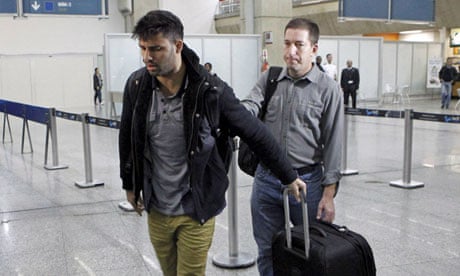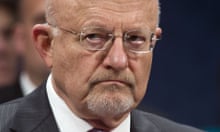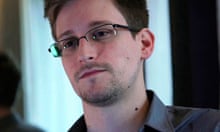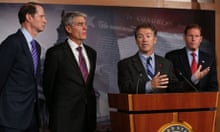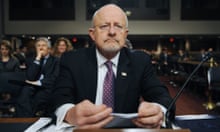Is Edward Snowden a hero or a criminal guilty of the most damaging espionage? It appears he is seen as both. Some will say he is a whistleblower who has fuelled the debate around the intercept of communications in cyberspace. But it was be no surprise to those who study the subject that a powerful search tool like Prism – and buffering software – is needed to find the communications of the terrorist or criminal among the billions of others.
But is revealing intelligence capabilities the way to conduct this debate, or is it gratuitously damaging? For Britain, Snowden's public interest justification is thin since subsequent investigation has shown conclusively the British intelligence agency concerned, GCHQ, has at all times acted lawfully.
I do not detect that the British public was much shaken, let alone stirred by these misguided allegations of wrongdoing. Nor do I know anyone who would say we should legislate to prevent the police from being able to track down terrorists, drug traffickers, kidnappers and paedophiles through their use of the internet. I know the public does not want to make the internet a safe space for those who wish to harm us. It is not the existence and power of systems like Prism and the links from NSA and GCHQ to the internet companies that is the problem: that capability is what it takes to do the job society has asked them to do in an internet age.
The real debate we should be having on the back of the Snowden case is about what privacy in a cyber-connected world can realistically mean given the volumes of personal data we hand over to the private sector in return for our everyday convenience, and the continued need for warranted access for security and law enforcement.
Whatever view we take on where as a society we want the balance between our right to privacy against our right to live in security, we all need to have confidence that in the hands of our authorities these powerful tools of interception are not being abused.
We have to have trust in those we ask to verify the activities of the state on our behalf: in particular we need to have confidence the senior judges and parliamentarians (the parliamentary intelligence and security committee, or ISC) can enter deep inside the ring of secrecy around police and intelligence work to satisfy themselves that all is well, and have the clout to get things put right if not. The senior judges who check on the lawfulness of intelligence work already exercise that legal power.
The ISC has recently been given enhanced powers to do its oversight job, including ensuring there is the right ethical culture throughout the intelligence community. The ISC now has to show it can understand the issues advanced intercept technology poses and must be given the expert help to do that. My feeling is that staff in the intelligence agencies would welcome deeper but more informed oversight, not least to protect their reputation.
Verification by so-called whistleblowers is certainly not the answer, as the Snowden case is dramatically revealing. When David Miranda, the partner of the Guardian journalist Glenn Greenwald – who has led on the Snowden story – was stopped by the police at Heathrow airport he was found to have on his hard drive 58,000 top secret British intelligence documents that had been shared with the NSA and stolen by Snowden (along with no doubt hundreds of thousands of comparable American intelligence documents). The British material covers in detail all aspects of the intelligence work we conduct alongside the US from detecting cyber-attacks to uncovering terrorist plots, to supporting our forces in Afghanistan.
And this material, British and American (and of other co-operating states), might now to be in the hands of the intelligence services of Russia and China. Not even the KGB in its 1950s heyday could have dreamed of being in a position to do so much damage to western intelligence. It will be like watching a slow motion car crash as lines of intelligence dry up, intelligence officers are exposed and cyber-attackers learn to avoid our defences. The Guardian sensibly agreed to have their copies in London destroyed under supervision so that other aggressive intelligence services would not be tempted to come after the stash, and the newspaper at least been selective in what it has published.
Even so, some damage to our security could still inadvertently have been done, since journalists are not best placed to know exactly what detail may complete the jigsaw puzzles of our adversaries. Instead of more revelations the Guardian should focus on a principled debate on how to allow intelligence agencies and law enforcement to do their job in keeping us from harm whilst preventing unjustified snooping by public or commercial sectors.
Professor Sir David Omand is a former director of GCHQ and a former intelligence and security co-ordinator for the prime minister
